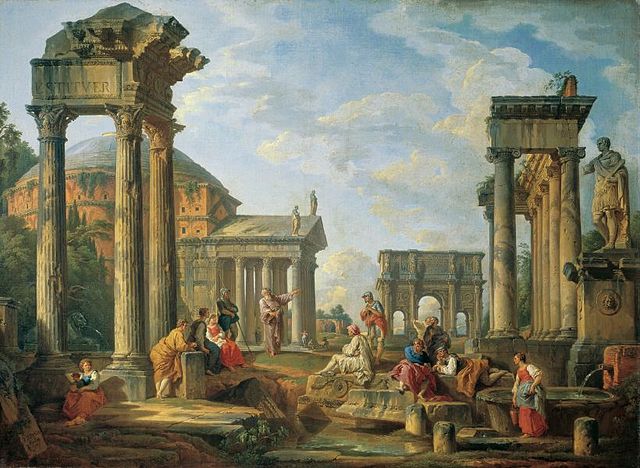Significance of State Specified History and Culture in PCS Examinations
Normally, while preparing for the Provincial Civil Services exams, the focus is on general studies topics, as these will have been studied for other competitive exams too. However, in the bargain, one aspect generally gets overlooked—the section related to the history and culture of the state. Therefore, this is an area that, if understood and mastered, will help you play an ace in PCS exams. It not only points out your knowledge about the State which you aspire to serve, but it will give you a pre-eminent position over others who may not have prepared it. Why State-Specific History and Culture Matter
The PCS examination, in a way, falls under the general ambit of state-specific history and culture. The State expects from its officers that they be ever so well-versed in the historical background, cultural heritage, and societal pattern upon which it is built. Knowledge of such sort will enable them to take decisions, build community relations, and conserve state culture in doing all this while implementing policies.
- A Key Differentiator:
One of the major reasons behind the importance of state-specific history/culture in the PCS exam is that it becomes a distinguishing feature among the candidates. When most of the aspirants are prepared almost equally for general topics like polity, economy, and current affairs, state knowledge will make one a bit different from the crowd. This will be a test in this section of your commitment to learn distinctiveness about the state and that you are not just any candidate but one who is genuinely interested in the region’s heritage.
- Relevance to Administrative Role:
History and culture of a state will be directly relevant to the assigned administrative role you will be doing. For instance, knowledge of the past history of land reforms in a state or cultural festivals could enable you to understand how to frame the policy. Detailed information on customs, traditions, and its historical derivation enables problems within the regions to be addressed properly, sensitively, and effectively. This would provide you invaluable knowledge for scoring potential in exams, enabling the wisdom of your decisions to be appealing to the people you would render services to in the future as a civil servant.
Knowledge of the history and culture of that state can prove valid and can help you score a lot of marks to your scorecard during PCS exams from a purely strategic standpoint. Generally, the questions from such an area are simple and factual. These questions, if you are prepared properly, can be answered quickly and correctly to enhance your overall score. However, unlike general studies topics where you may find some being tricky or requiring more analysis, they will often test you on being able to remember details about the state, and so the work will have to be put in beforehand to make it an easier task of tackling the questions.
How to Prepare for State-Specific History and Culture
Given its weightage, how should you go about preparation of this topic? Here’s what you can do.
- Start with the State Books; Follow These up with NCERTs:
State board textbooks must be the primary source, ideally, to understand the history and culture of the state. They give an overall understanding and tend to be written keeping in mind the importance of the state. For example, in case you are preparing for the Uttar Pradesh PCS exam, please read the books on history and geography published by the Uttar Pradesh state board. That would be quite sufficient as the base.
- Read Government Publications:
Government publications like state gazettes and official reports are also very useful. These carry lots of detailed knowledge concerning the state’s history, cultural practices, and development over time. They are especially worth going through concerning the state’s administrative evolution and historical governance, as questions keep cropping up from such topics in PCS exams.
- Go through Regional Literature and Journals:
Regional literature from local newspapers and journals can be very useful in having an idea about the prevailing cultural trends and historical discourses of a state. Again, journals by local universities or cultural societies usually publish research papers or articles on the various aspects of the state’s heritage, which may otherwise not be too common. Such pieces of information will provide one with an expanded and somewhat refined scope of the culture of states across India.
- Use Online Resources:
There are some online platforms available that put up reports of study material for the PCS examination state-wise. Websites like Sleepy Classes post a detailed course based on requirements of aspirants preparing for the PCS, in addition to resources of the history and culture state-wise part. These kinds of courses are therefore framed in such a way that they provide the aspirants with all types of information and guidance that is needed for preparatory material for the examination.
- Visit Historical Sites and Cultural Centers
Visit historical sites and cultural centers within the state whenever possible. It is by visiting that one will be able to understand the importance and value of the heritage of a state. It is also easier to remember information when the sites are visible and met with personal experiences because one can remember the fact in its context relative to something they had seen or experienced.
Sleepy Classes also has these comprehensive courses for the State-Specific History and Culture part of the PCS exam which is designed for strategic insights and in-depth knowledge to be gained out of them. These courses are made to attend to each of the state exams. To learn more about their offerings, follow the link below.





